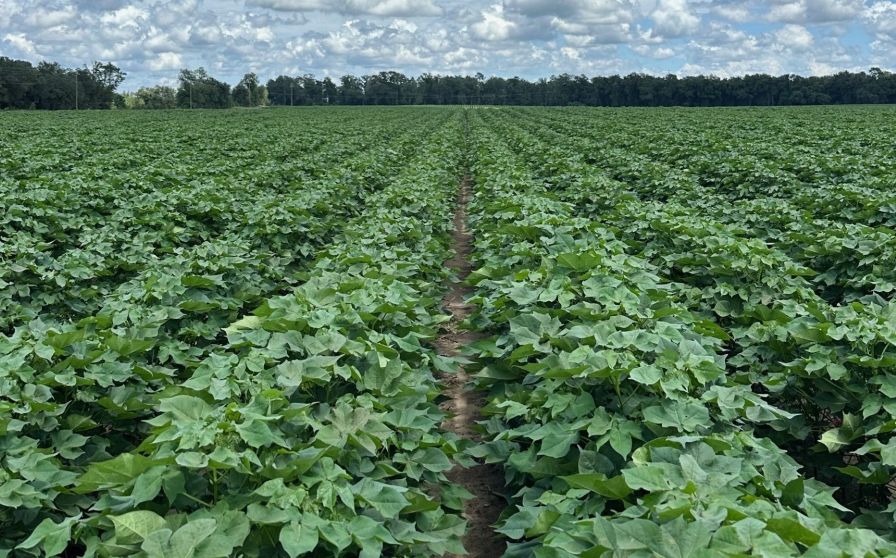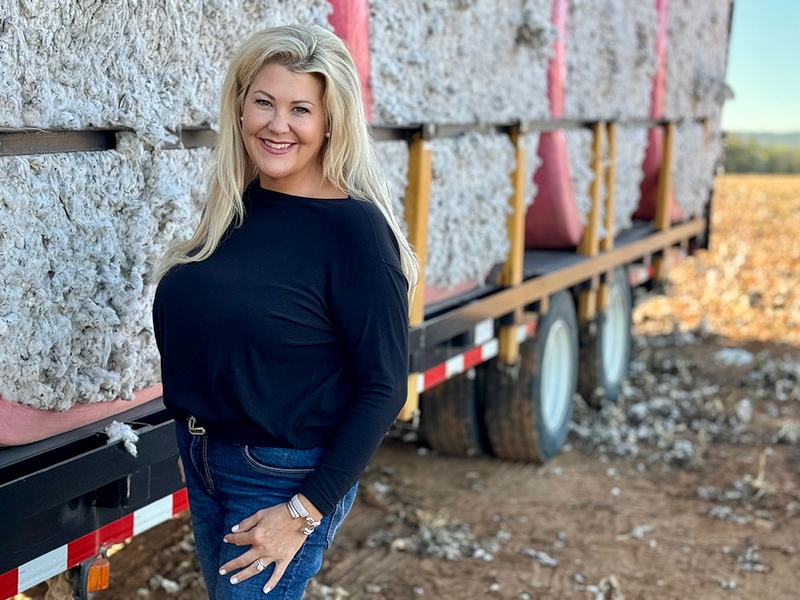Mother Nature Now Controls the Market
The cotton market enjoyed another roller coaster week, but finished trading by defending its newly-established 64-65 cent support level for the new crop December contract.
Mother Nature has taken control of the market. Speculative funds and the trade alike are attempting to decipher U.S. plantings and the acreage that will be lost to excessive rainfall in the U.S., the potential Indian crop development given the record/near record heat wave covering the country coupled with the substandard monsoon, and the hail and cool weather affecting the Chinese crop. All of these respective areas have already suffered yield-reducing weather anomalies, and expectations are widely accepted that additional losses will occur.
Additionally, the market is attempting to judge the impact of the Chinese market meddling with their own cotton policy and its effect on the world textile industry and subsequent world cotton prices. All of these events are listed on the bullish side of the market, with the question being how fast the events will impact prices. Yet, for now, the market must attempt to prioritize which of these events will be the first to have a major impact on prices. Thus, the long established trading range will remain as the market trades generally between 64 and 68 cents.
The U.S. crop has been reduced some 1.0 million bales. Primary acreage losses (prevented plantings) include an estimated 750,000 acres in Texas and another 50,000 acres in the Midsouth. More acreage is in danger, but a large portion will likely get planted if the weather remains open in West Texas and the Rolling Plains this week, as expected. There are another 3.0 million acres at risk, as growers face a June 1-10 planting window (dates that require planting to be completed for insurance coverage). Another 1.0 million acres in Texas face a June 10-20 planting window.
Effectively, all cotton planted in Texas is covered by private insurance, since it is now the only component of the Farm Bill by which cotton growers can obtain revenue and/or price protection. For that matter, most U.S. acreage is also enrolled in the insurance. Price insurance has become the primary farm management tool of all cotton growers, supplanting the heretofore agronomic management tools.
Prior to the implementation of revenue/price risk insurance as part of the Farm Bill, Texas growers, if need be, continue planting dryland acreage up to the middle of July. However, in the vast majority of farm plans, growers are well advised to use the insurance. For example, growers can collect on the insurance for cotton (granted, it will be less than breakeven for most) and still plant sorghum or late corn to supplement their revenue. This year’s moisture bodes well for sorghum and non-program corn as well, thus allowing the price insurance program to work as envisioned by the Farm Bill.
Planting in India has advanced beyond the 70 percent completion level, with much of the remaining on hold due to temperatures routinely between 115 and 125 degrees and the absence of any appreciable monsoon. Yes, cotton loves hot weather, but pollination will be somewhat improbable at such temperatures. The country is facing a 2.0 million bale loss.
Likewise, China, carrying a 27 million bale crop as forecast by USDA, will likely harvest something closer to only 24 million bales.
Briefly, the Chinese cotton policy has had the unexpected consequence of effectively shuttering the Chinese spinning sector. Spinning mills, unable to source usable cotton, have turned to yarn imports and also have constructed spinning operations in the U.S. (and are now expanding). The yarn is exported to Chinese weavers and other apparel operations for further processing and then exported back to the U.S. as finished goods.
As mentioned in earlier reports, the Chinese policy has been directly responsible for the development of the Vietnamese spinning industry, as well as increased yarn operations in India and Central Asia. This does nothing more than cheapen the already well overpriced Chinese reserve stocks. Like all the Western economies decades ago, the Chinese are now learning about the free market and the world economy as well.
Digressing, I recall the exceptionally brilliant theoretical Chinese economist speaking at a 2008 conference and commenting that his government has studied the U.S. mistakes and had devised policies that would protect their textile industry. He had an excellent command of economic theory. Yet, the single point I took from his comments was that he failed to understand Adam Smith’s ”Invisible Hand” in the Wealth of Nations, one of the three great international events of 1776.
The policy followed by the Chinese will continue to support world cotton prices, and the support will become more pronounced over time. The immediate impact has been to enhance the premium for leaf grade 3 and better, an impact that will continue.
The weather scenario, coupled with the strong pace of U.S. export sales and shipments, has set in motion the potential for a reduction in world carryover stocks of 10 to 15 million bales, compared to the USDA May estimate of a four million bale reduction. Yet, should that be the case, carryover will be in the 90-95 million bale range – still very excessive. Yet, as now, the vast majority of such stocks will be the very low grades held in the Chinese reserve and will be of little value as yarn imports will become the base of the Chinese textile industry.
Too, it is this yarn that will replace the raw cotton imports to China. Additionally, the 2015-2018 cotton market will continue to offer a significant premium for 31-3-35/6 and better (premium mic and bark). Premium bark (bark free) has been taken for granted for a number of years. But the decision by numerous Texas growers not to defoliate gave rise to a significant bark problem in 2014 and proved to be a very expensive management decision.
The market continues to make higher lows. December remains undervalued. It will be a slow grind.









